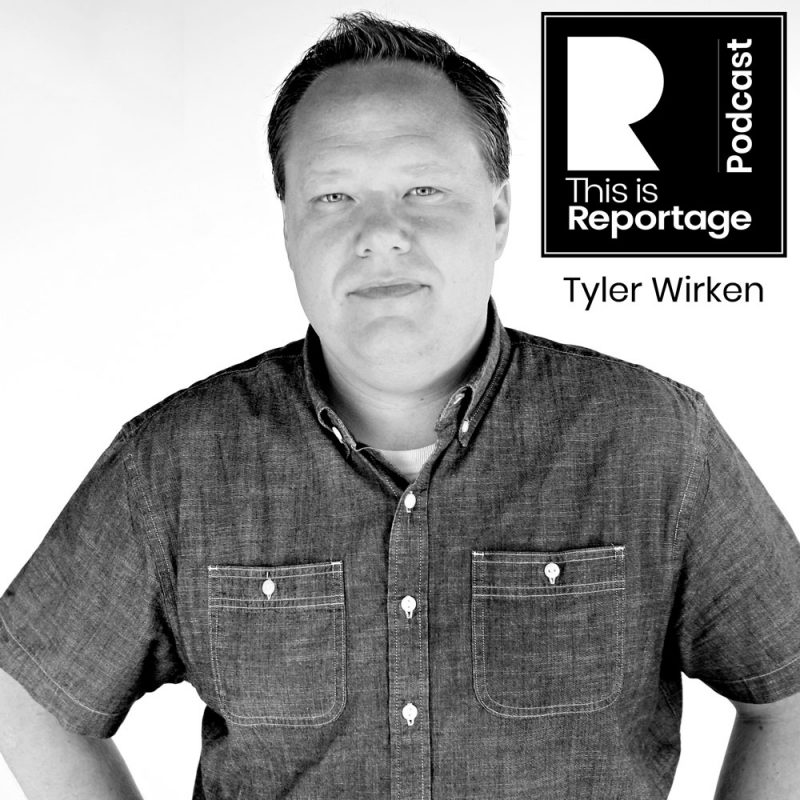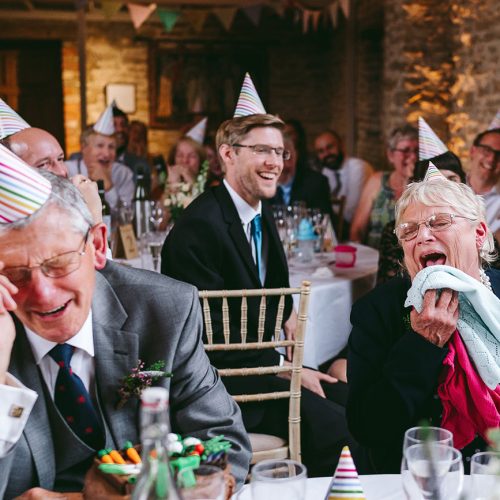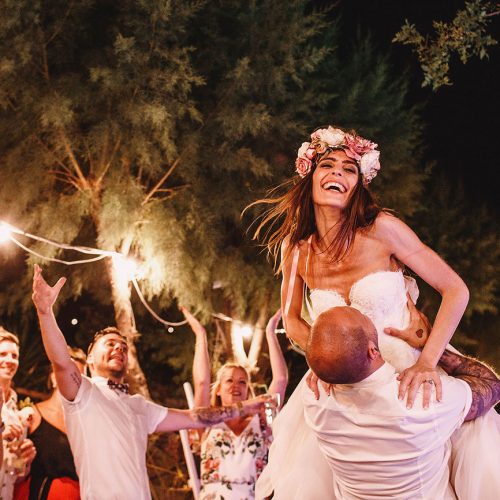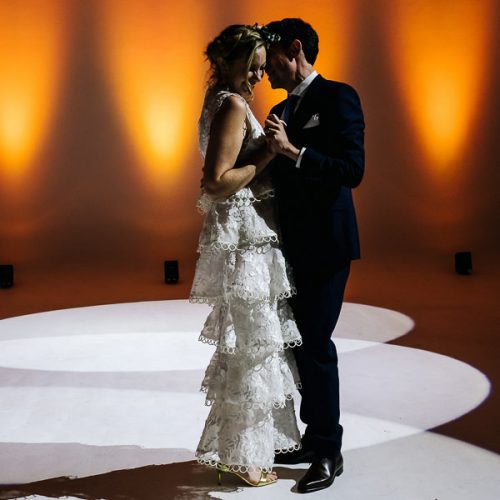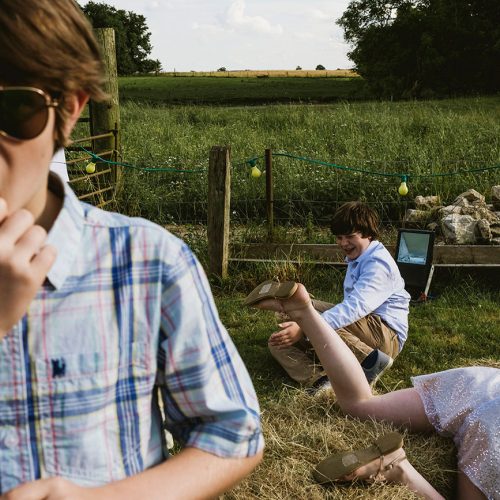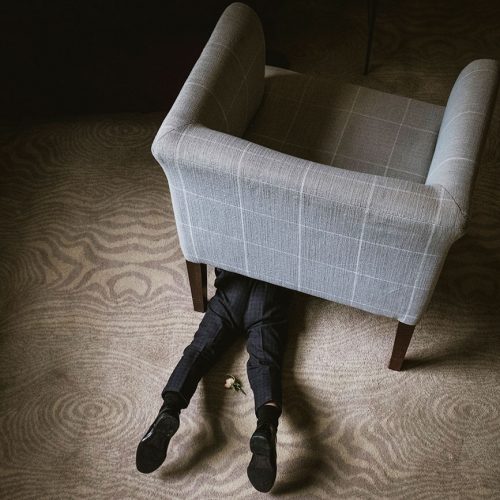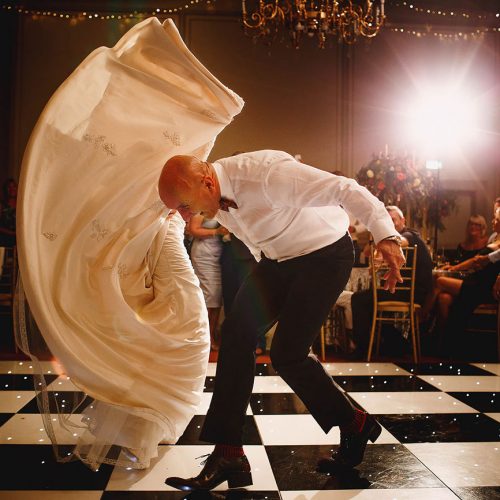Podcast Episode 27: This is Tyler Wirken
Honoured to bring you the one and only Tyler Wirken for episode 27 of the This is Reportage Podcast! Known – rightly so – as one of the best documentary wedding photographers in the USA and the world, Tyler has an incredible amount of accolades and awards, and, with a vast amount of expertise and experience, has long been teaching and mentoring photographers worldwide.
We’ll also be having a Facebook Live with Tyler soon, where you’ll be able to ask him anything about what he says on the Podcast, or just any questions at all – stay tuned to our social media channels to find out when this will be.
Tune in to the episode today as Tyler shares so much, including:
- his thoughts on Vegas and shooting an elopement there,
- the ethics of photojournalism and the documentary approach,
- one of his big regrets (but why he’s also glad he did it when he did),
- how social media has changed the perception of weddings,
- his documentary approach, and how that has evolved over his 18 years of shooting,
- documentary vs ‘play it safe’,
- the importance of diversification and having an exit plan,
- a day he’d like to re-live over and over again,
- why he loves adversity,
- life lessons from his Dad and how they’ve affected his photography,
- his Wirkshoppers Facebook group where he’s delivering lots of free content,
- his Netflix recommendations,
- moments of embarrassment in his life,
- why it’s essential for him to meet his clients before the wedding,
- his top tips for better documentary wedding photography,
- the most important picture he’s ever taken,
- and much more…
You can listen on all the usual ways: Spotify, Google Podcasts, iTunes, YouTube, and below in this post (with a full transcript, too, as there are for all our wedding photography podcast episodes).
Alan Law:
Hey Tyler, how you doing?
Tyler Wirken:
Good. Doing great man.
Alan Law:
Oh, cool man. Thank you for joining me. It’s awesome cause you’re all the way over in America, aren’t you?
Tyler Wirken:
Yeah. Kansas city, Missouri. Do you know where that is?
Alan Law:
I do not. My American geography is awful. No, is it anywhere near Vegas? I only know Vegas.
Tyler Wirken:
You only know Vegas. That’s funny. And Vegas is like the wors…it’s like the worst of America basically. Missouri is right smack in the middle, literally like in the middle of the United States. Yep.
Alan Law:
Oh, okay. So you’re quite far from the sea then?
Tyler Wirken:
Yes, very far.
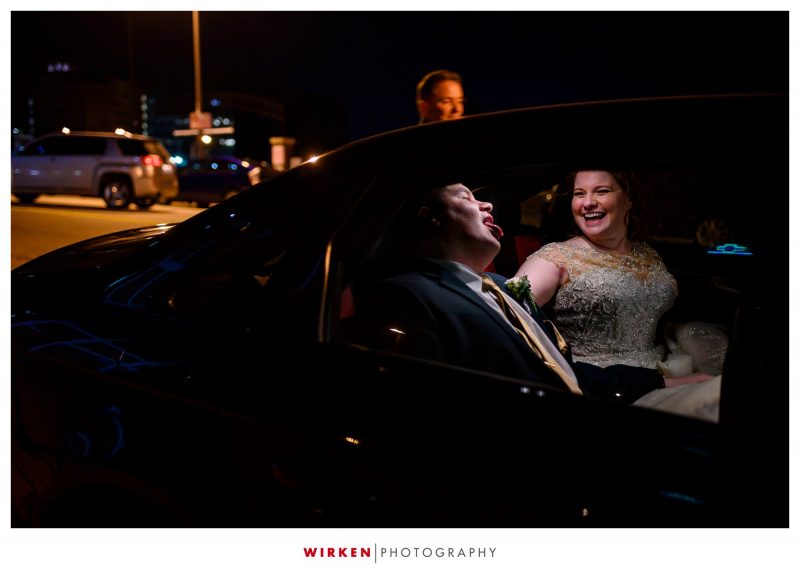
Alan Law:
Yeah. You know, I need to see more of America. I’ve been to Vegas like six times now. I’ve never been anywhere else in America. That’s bad, isn’t it?
Tyler Wirken:
That’s a shame because Vegas is the worst place in America, in my opinion.
Alan Law:
Oh, you’re not a Vegas fan? No.
Tyler Wirken:
No. I hate it.
Alan Law:
Oh really? Yeah. Do you go there for like WPPI or anything?
Tyler Wirken:
That’s the only time I go there and I can last maybe three days. I think it’s all that’s wrong with humans in one place.
Alan Law:
I think that’s why I like it.
Tyler Wirken:
That’s the other side of the coin, right?
Alan Law:
Have you ever shot a wedding in Vegas?
Tyler Wirken:
Yes. I actually shot, that was really fun actually. I shot, my wife Pam and I, went there and shot an elopement essentially. Right? So I had to actually sign the marriage license because, you know, we were the only witnesses. It was just the couple and us and it was actually one of my favorite ones that I ever shot because it was such a weird thing, you know?
Alan Law:
Yeah. Were you still able to do it in quite a documentary way because is it harder to shoot an elopement really in a kind of documentary kind of way?
Tyler Wirken:
Actually no. Well, yes and no. It was not hard to do it in a documentary way, in my opinion but I had to think about the story differently. Right? So like as an example, I had this picture. So I got ready with the bride and her in their hotel suite, whatever. And my wife was with the groom going to the venue. So they didn’t see each other beforehand and stuff like that. Well, when the bride was leaving the hotel room, she had all this stuff in her hands. Like she had her purse, her flower bouquets things and trying to find her hotel key to lock the door. Right? And I was there and I could have easily held the door, but I’m like, I’m not here. Like, I’m just supposed to document this like I’m not here. So I photographed all of her struggle with trying to do things herself. Does that make sense?
Alan Law:
Yeah. No, that’s cool. Yeah. And that is always your approach, isn’t it? So you’re not even a photographer who, you know, some people class themselves as documentary, but they’ll still open the curtains or close curtains to a certain degree, or they’ll ask the makeup artist to move to a different, you know, corner of the room where there’s better light and things. Do you not do any of that kind of stuff?
Tyler Wirken:
Yeah. I don’t because that’s not documentary, right? To be honest.
Alan Law:
No, I agree with you. I agree with you totally.
Tyler Wirken:
Yeah. Yeah. No, I get it. I get it. I get it. I get it. This is commerce. There’s no rules, there’s no ethics that we have to do it a certain way so I understand that. However, I come from a photo journalism background and I was taught those ethics of photo journalism and documentary approach. So no, the bottom line is it’s not my place to interpret what their wedding day should look like. It’s my place to document what it was. Right? That’s my purpose. Right? So that’s why I don’t do that stuff. And I don’t know where to draw the line to be honest with you. Right? I mean there are extreme cases because I’m doing it for commerce that I will break that rule for myself. Like, you know, but it has to be something that I think is really worth breaking the rule for, you know? So I just don’t want to draw that line and so I just decide to stay on the one side of it, you know?
Alan Law:
Yeah. Cool. And I totally agree with that approach. You know, hence TiR as well. It’s funny you mentioned your photo journalism background there and I read you once wrote, “Considered as one of my biggest life regrets, I left the newspaper business too early.” Can you tell us about that? Do you still feel the same way?
Tyler Wirken:
I do and I’m still chasing that to this day. Right? Okay. I should clarify that by saying it still is a big regret, but I’m glad I did it when I did it because the newspaper world sadly was a sinking ship at that point. But I didn’t know it yet so I’m glad I didn’t have to deal with that, but I wish I had more experience in the field. Right? So I never held a staff position at a newspaper. I was either an intern or a freelancer. Right. So I graduated from the University of Kansas with a photo journalism degree in 1997. And I actually did this a little bit differently. You usually do like an internship while you’re in school and then you graduate. I actually ended up getting the internship after I graduated, so I went to the Columbus dispatch in Columbus, Ohio for a three month internship there and that was incredible. And I really excelled there. I was doing really well and they wanted to hire me and that’s the regret. That’s the regret is, ‘cause I was younger then, I was a completely different person and I was like, ah, I kind of miss home and I need to go home cause I’m diabetic and you know, I made all these excuses. Right? And I went back home, worked for a couple of newspapers as freelance for a little bit and then decided to go to work for my dad as an electrician. So that’s that regret is, you know, man, why didn’t I just suck it up and go for it? You know? But I’m a late bloomer, you know, and so I wasn’t as adventurous as I am now, unfortunately, you know? So that’s where that regret comes from. I worked for my dad as an electrician for a few years and then maybe four, I think, and then realized, I don’t know if this is it either. And so that’s when I started wedding photography in 2002.
Alan Law:
2002, which is like, yeah, 18 years. 18 years. That is a long time to be doing weddings, isn’t it as well?
Tyler Wirken:
It is. It is. And they always say the expiration date or expiration point for wedding photographers is 10 years. Right?
Alan Law:
Oh okay. Who says that?
Tyler Wirken:
Somebody said it to me one time and I’m like, whatever…and ten years hit and I was like, Oh crap, I think this is right. So I’ve made it eight years past. But you know, it’s hard. It’s honestly hard. It gets harder as you get older, not only physically, but also mentally because as you get older, and this is where I approach my wedding stuff from. As you get older, life changes. Your priorities in life change. You’ve actually gone through some stuff in your life, right? And you start to really realize what matters, you know, and when you’re newly married at age 22 or 23, 24, you haven’t had those experiences typically yet. And so, you know, I’ve often said that I think we’re doing this backwards, right? Like, you should just go get married at the courthouse when you’re getting married at a young age. Just get it over with, make it legal. And then 10 years later is when you should have the wedding because now we actually have something to celebrate.
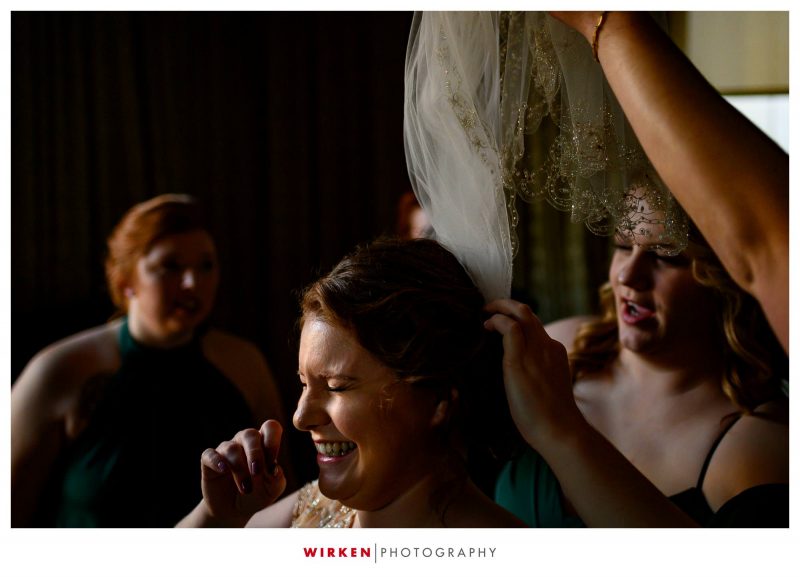
Alan Law:
Hmm. That’s a good way of looking at, yeah that’s true.
Tyler Wirken:
Right? Because we’re celebrating nothing yet. Right? All we’re celebrating is the fact that we all love each other and it’s two families coming together, which is great, but we kind of sometimes lose perspective on why we’re really there that day, you know? And I think that that’s ultimately what I am having trouble with at an older age. I can’t relate to the wedding industry as much anymore because I’m like, none of this, very little of this matters. Like we don’t care, what does it matter? Just eat it, you know? Does that make sense? Anyway.
Alan Law:
No, that’s so true. I mean, and 18 years and it’s so long. Have you seen the industry and weddings themselves change a lot in that time then? You know, from when you were first shooting in 2002?
Tyler Wirken:
Not really. I mean, I don’t think overall. It hasn’t changed that much. I think they’ve gotten worse.
Alan Law:
In what way?
Tyler Wirken:
I mean in terms of the whole like, cause I think what’s gotten worse about it is I think social media has affected people. People just think differently nowadays, right? It’s all about the look. It’s all about what perception of myself am I putting out there and I want to show my best. You know, think about Instagram and think about influencers on Instagram and they have to pose this certain way to make themselves look the best in every picture. You know, I mean, I think that that is a hundred percent affecting everything. And so I think they’ve gotten worse because I think that the priorities for couples – just because of the generation – is different than what it was before. Right? In terms of, cause I’ve seen it. I’ve seen it where like my market has shrunk in terms of finding people that really want what I do, which is showing the reality of things and so the only thing I can kind of really put that towards is I want it to be a certain look. And there’s no depth, there’s not as much depth overall to the events as there used to be in my opinion. Right? It’s still there. It’s still there of course but it seems not as much.
Alan Law:
Yeah, no, I get what you mean. I mean, I’ve not been doing it as long as you, about eight years or so in it, you know, a lot more nowadays is more about the trends and the material sides and people wanting their weddings to be like grander than their friends’ weddings and things. And as you say, it’s not about that, is it? And that is what, you know, obviously with TiR celebrating the documentary side, and that’s what you do, and that’s what’s great about your approach. Has your approach changed at all? I guess it hasn’t, you know, from the 18 years, are you still shooting weddings the same as you shot them, like, 18 years ago?
Tyler Wirken:
No. When I first started, I talk about this in my workshops, right? I show my journalism stuff, which was pretty solid, right? And then I show my first few weddings and they’re just horrible. You know, I mean back then it was different. People loved it still, but like comparatively, they’re just like not good. And I always say like, what happened? Why did I go from doing this to then doing this? And I always say that like I think it was because when I got into the wedding world I thought I had to be a wedding photographer. So I had to do it like wedding photographers did it. Right? Even though I still had my journalism edge to it, it was still just not good. Right? And so over the years, especially as I teach it, cause I’ve been teaching this stuff since 2005 when I first started teaching it at the Foundation Workshop with Huy Nguyen back in the day. And so as I teach it, my resolve for the documentary approach gets stronger and stronger and stronger. So therefore I have changed the way I approach it in terms of the ratio of pure documentary to like, you know, the portrait time or things like that… is drastically different than what it used to be when I first started.
Alan Law:
Okay. That’s interesting. So it’s a lot higher. Because I was going to ask, has there ever been a time where you’ve doubted your approach as being documentary? You know, I mean, has there ever been time that you’ve been worrying about the bookings, perhaps thinking that maybe we should follow the portrait route instead or not? Yeah?
Tyler Wirken:
So I do a lot of mentoring with photographers all over the world. Right?
Alan Law:
I think one of my colleagues down here in Cornwall, you’ve mentored him actually.
Tyler Wirken:
Who’s that?
Alan Law:
Stewart Girvan.
Tyler Wirken:
Oh yeah. So that’s where you’re at. That’s cool.
Alan Law:
Cool. And he raved about how you mentored him.
Tyler Wirken:
He’s awesome. I haven’t talked to him in a long time. I need to reach out. But anyway, I hope he’s well. So I’m a very honest person. Right? I’m not going to tell people just what they want to hear. So, you know, all these photographers. So it’s interesting because photographers love this style, right? Because my theory is that wedding photography is the gateway drug to real photography. Okay? Like I believe that because I’m kind of like… so, most of my clients, okay, I would say 90% of my mentor student students don’t need more work. Okay? They are booked solid.
Alan Law:
Right. So why are they coming to you? Why are they coming to you?
Tyler Wirken:
Why are we doing this? Why are we mentoring? And it’s because they aren’t happy with their own work, right? So they want their photos to be better because it’s all about like, it’s an internal thing, right? Because I’m like, you could go on like this for the rest of your career and you would be fine. Right? So that leads me to believe that so many people are just kind of like that regret I’m still chasing, right, is so many people are chasing that elusive. Like they’re all like, well I want people, when they look at my pictures, I want them to know that I shot it. I want a style, I want to look, I wanted this, I wanted that, you know, whatever. Right? And so, I don’t know where I was going with this, but the point is that like you know, I think. Oh yeah, the honesty. So they all don’t need the extra work, right? So they want to be a better photographer so I tell them, I say, here’s my experience, right, is I’m in the same boat. Okay? What I want to do is be a real photo journalist. Cause I think I’m a faux-to journalist, FAUX, you know, photo journalist. Right? And so I want to really make a difference with my pictures beyond, and I want to tell better stories and that’s chasing that regret from that newspaper world. Right? And so I tell them, I say, if you want to be super successful as a wedding photographer in terms of not worrying about bookings you know, just really playing the game at its highest level. I tell them, you got to play the game, right? And playing the game is… think about the majority of people out there when they first get engaged, what type of photography are they really wanting or are they thinking they want? Right? So if you just give them that surface, right? Glamour, make everything look really fancy and better than it was and yada, yada, yada, and do all the slimming and the shenanigans, whatever you’re going to do, I believe that you’re going to have an easier go of things in terms of the business side and booking weddings. Because I have these two mentor students that I just finished with and they play the game big time, right? They go to like five or six bridal shows a year, they have, you know, their business name is very like, ah, you know, like Oh, that’s, you know, whatever. Right? But they’re amazing photographers. They truly are. But it’s like, you know what, you guys, and I even told them on the first session, I’m like, I think one of the problems is if you want to make your work better, you got to stop playing the wedding game as much as you are. Right? And so yes, to answer your question, I think a truly documentary style, especially in my market, right, especially where I’m located, right, is a harder, harder sell than the kind of play it safe, expected stuff.
Alan Law:
Cool. Yeah, I get what you’re saying there definitely and I agree. But yeah, I just couldn’t go down that route though, of just shooting like how everybody else shoots. I know. I totally hear you. And it would be easier in a way, wouldn’t it? It would be easier shooting that kind of glamour way, but it’s just not what appeals to me at all. And I guess that’s never appealed to you.
Tyler Wirken:
There’s my point of the wedding photography being a gateway drug to being a real photographer. Right? Is because that’s what my mom said to me one time. She’s like, I was complaining about it and she’s like, why can’t you just show up and just shoot it like they want? And I’m like, I don’t know. Like I can’t. Interesting. Isn’t it? Anyway, go ahead.
Alan Law:
No, no, no. It’s cool. But are you proud to say you’re a wedding photographer? Do you still class yourself as a wedding photographer? You know, even though you shoot documentary, do you still class yourself as a wedding photographer?
Tyler Wirken:
Yeah. I mean, I guess I do. Right? I mean, I don’t say I’m a wedding photographer. I say I’m a photographer. And then if people ask, then I tell them what I do.
Alan Law:
You’re not embarrassed about it, are you?
Tyler Wirken:
I think I am to a little bit. I really do. Because even though wedding photography has come a very long way, right? I mean a very long way in the last 15 years, whatever. I still don’t think the average Joe, they still think of wedding photography as what wedding photography was back in the nineties. You know, I really believe that. Right? Because the average person, they don’t pay attention to this stuff. They don’t ever look at wedding photography. They have no idea that organizations like yours exist that, you know, show the best of the best. Right? So I think I am, because when I say wedding photography, I always follow it up with err, but I don’t do that crappy wedding photography. I do the documentary stuff and they’re like, oh wow, that sounds interesting. Every single person says that, so yeah, I think to a point, you know, I mean I’m not embarrassed by it, meaning that like I don’t put my name on things or whatever, but you know I think the fact that I have to somewhat defend it still after 18 years means that either the perception’s still not changed or I’m not quite where it needs to be.
Alan Law:
Oh, no, I find that really interesting. Yeah, I do find that really interesting. Let’s change tack slightly. A hypothetical question here. If there was a global pandemic and weddings were thus no longer able to go ahead for the foreseeable future, what advice would you give to wedding photographers? How do you think you would feel? What would you be doing in that hypothetical situation?
Tyler Wirken:
Purely hypothetical.
Alan Law:
Yeah. I wish, I wish.
Tyler Wirken:
Okay. So you said weddings would not be continuing, right?
Alan Law:
Well, for the foreseeable future.
Tyler Wirken:
Yeah. Yeah. So I actually have a little experience in this, right? I’ve kind of, you know, experienced a pandemic at one point. Anyway, so yeah. So I’ve said for years and I haven’t said it, but I felt for years that, and now I’m saying it is that like, I don’t think wedding photography is a sustainable career, even in a non-pandemic situation. Right? I don’t think you’re going to retire as a wedding photographer per se.
Alan Law:
Why do you think that?
Tyler Wirken:
Because of that expiration period and because of what I’m experiencing, right, in terms of just mentally trying to keep up with this pace for that long, I think. Right? So my advice would be to diversify as much as possible, honestly. Right? Because you know, I didn’t do it early enough but I talked about this, I just did a speech in Austin, right, at the friends of fearless conference, whatever, and I talked about this exact same thing. It’s like, you better come up with an exit plan. Like right now, and now’s the time because it’s just, I think everybody I talk to that’s my age that has been shooting about as long as I have, that’s all we talk about anymore is what are we going to do when we grow up? To be honest. Right? So diversify. That would be it. And then someone’s like, well, how do you diversify? Well, I’m diversifying and I have been for years with my teaching, so at least I’ve got something else that I could kind of do. And I do some family work, some documentary family work, but I’m now for the last two or three years, been working on transitioning more to the commercial world in the marketing and branding world and doing the documentary, pure documentary, authentic approach to storytelling for brands and businesses and non-profits and things like that.
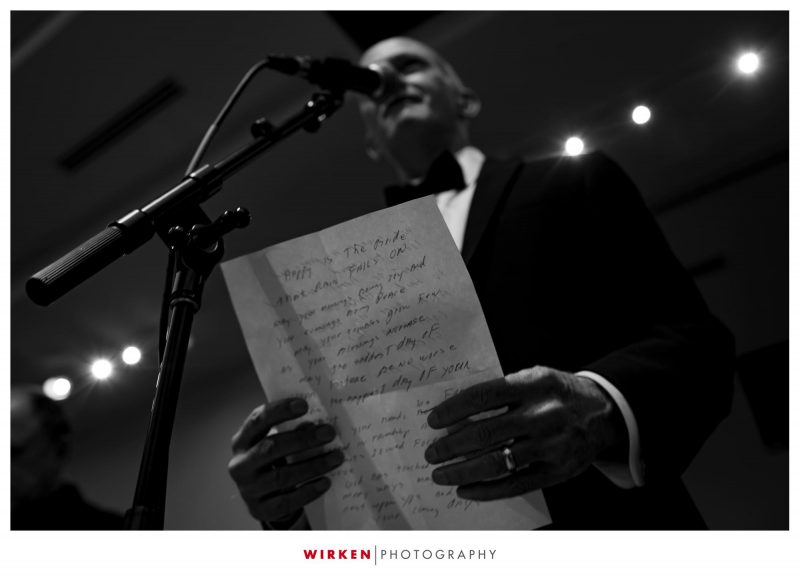
Alan Law:
Okay, cool. Do you enjoy that side as well?
Tyler Wirken:
I love it so far. I was literally just kind of getting going, getting my pricing done right when this whole thing hit so I kind of had to just like stop it. Right?
Alan Law:
So how long have you been thinking of like an exit plan? Was there a certain point in your career? Did something specifically happen where you, you know, this puts it more in the forefront of your mind or was this a natural thing, you know, that you’re going to think about?
Tyler Wirken:
This is a slow thing that happens. And I mean, like my kids are older now, you know, the whole like working on the weekends and you know, I mean that stuff gets old. Like I’ll be honest with you, right? It just gets old. And when the kids were young it was no big deal. You know, they had to go to bed at seven o’clock, whatever and it didn’t matter. But like, you know, now they’re in their teens and we can do more and we can travel more and you know, all that kind of stuff. And the weddings, because we book them out so far in advance, they just kind of hinder that, you know? And I think it was just kind of one of those things where it’s like, man, I don’t, you know, I mean, when I’m in a wedding and I’m shooting it, I’m still all in. Right? I mean, there is nothing about that. It’s just the kind of industry of it all that I’m of like, it slowly was just like, I don’t know if I’m going to make it another 10 years with this. Right? And so that’s when it started to creep up where I’m like, okay, the good news is, is I’m not like done, done. Right?
Alan Law:
Done, done. I like that.
Tyler Wirken:
I’m not like, Oh my God, I can’t do this anymore. But I saw the writing on the wall at some point. Right? And I don’t honestly know exactly when that was but I think I’ve been working towards this idea for, man, probably at least four years, if not longer.
Alan Law:
Right. Okay. No, that’s interesting. I think that’s really good advice as well. And that diversification. I obviously like a lot of photographers felt like in hindsight that would have been a great thing when this pandemic hit, and not just diversify within the wedding industry and, you know, to diversify in totally different industries, even outside of photography maybe, especially with this, what’s happening now, I don’t know. I felt guilty, you know, when this happened, you know, because obviously my own wedding photography and This is Reportage are both in the wedding industry. So when this hit, I felt I’ve got my family reliant on an income that’s in this one industry. You know, I felt this real sense of guilt. It’s a weird thing. It’s horrible.
Tyler Wirken:
Yeah. I mean, you know, if we’re going to be honest, I mean, I’ve been thinking about this for a very long time where I’m kind of like, all right, part of me just wants to hang it up and go work for somebody else like everybody else does and just go to do their job. And like my neighbor, he’s like one of our best friends and he loves his job and it’s very secure and he goes and he does his work and he has fun with it and he comes home and he’s just always happy, you know? And I’m like, part of me wants that, but then I’m kind of like, man, I just don’t think that’s in me and do that sort of a thing. But I also can’t just give up on my shooting like that, you know? And because I know for me that if I gave up on the shooting and I went to work for somebody doing non-shooting stuff, I wouldn’t shoot anymore. Because I don’t shoot for myself.
Alan Law:
Yeah. You’re not one of those photographers who’s like shooting like eight hours a day and with his family and everything.
Tyler Wirken:
No, never. I never. Like my gear’s in the house now. Okay? It used to be at the studio, but we had to move it home because of the lockdown stuff. Right? But my gear is in the house. I have no excuse now and I never go pick it up because… I did something last weekend with it. My wife and two boys have been training for a, I don’t want to say marathon, but it’s a run, right? A little four mile fun run they were going to do and then it got canceled. So they’re like, well, we’re still going to run it. Right? So I got a few of my family member to cheer them on, and so I’m like, Oh, I’m going to shoot it. Right? And I got really frustrated doing it because when I’m shooting, I want so badly to do it as good as I can and I think when I had that real camera in my hand, I know this sounds like really cheesy, but it’s like I’m like all in or all out. Like I can’t just like kind of do it. Does that make sense?
Alan Law:
Yeah, I know what you mean. Yeah.
Tyler Wirken:
That’s why I got frustrated because I was like I was trying to balance both roles, right? And so I got frustrated because I couldn’t really dive into the picture side of things and it suffered because of it, you know? So yeah. I’m not a shoot for myself kind of guy. So I think that’s part of it, you know? And so yeah, I just got to keep going. But outside of the wedding industry, and that’s why I think the commercial side is so important to think about because after 18 years, I’m kind of tired of the photography I’m doing as being a luxury. Meaning it’s not a necessity. Like, we don’t, I mean, wedding photography can be considered a necessity, but I personally am not, there are many other photographers now that are really, really good that can get the job done good enough. Right? In terms of if the budget’s not there right?
Alan Law:
A lot that you’ve been training them to be really good. It’s your fault, Tyler.
Tyler Wirken:
I know. I’m the problem, I’m the problem. But anyway, does that make sense? And so the commercial side, I see it as more of a necessity, right? Like we need to market it in a different way. Let’s, you know, we can justify the pricing more, whatever. Right? I haven’t proven that yet, but that’s what I’m hoping at least, you know, so.
Alan Law:
I’m sure it will be super successful as well. That’s cool. That’s cool. Cool. Cool. Let’s change tack. Let’s go off photography a second. So, okay. If you could choose one day in your life to live over and over again, like Groundhog Day, have you seen Groundhog Day?
Tyler Wirken:
Yes.
Alan Law:
Yeah. Did you like Groundhog Day?
Tyler Wirken:
Do you like the movie or the day day? Yeah.
Alan Law:
Yeah, okay good. I love film anyway. But yeah. So if you could choose that one day that you had to live over and over again, what day would it be?
Tyler Wirken:
Geez, that’s the worst question I’ve ever been asked.
Alan Law:
The best question!
Tyler Wirken:
I don’t even know. I don’t even know. I tell you what though, this kind of goes back to the wedding photography thing where everybody says it’s the best day of your life. Right? Weddings are? It would not be my wedding day. No, absolutely not. And I find that, I tell my clients that. I say, this is not the best day of your life. And I tell them, I go, I hope it’s not. I go, because if it is, then I feel really sorry for you because there’s nothing left for you after this. Like, it’s all downhill. Right?
Alan Law:
That’s so true, isn’t it?
Tyler Wirken:
It’s an important day, but it’s not the best day of your life. So as of recent, you know, I don’t have a very good memory. Right? So just recently, those friends I talked about that are our neighbors, they have a Lake house. So it’s like there’s a Lake that’s as close to the water as we get and we go down there, whatever. We went down there just recently, and I’m a big Land Rover nut, right? I’m obsessed. I even have a like, you know, little tiny Land Rover model on my desk. So we went down there to the Lake and it was all of us. So my kids, you know, the dog, we took the Land Rover, it was just a wonderful weekend where I let my kids drive it off road.
Alan Law:
Oh wow cool! How old are they? How old are they?
Tyler Wirken:
They’re 12 and 14 and so they’re too young to drive a car, but I don’t care. Right?
Alan Law:
They can reach the pedals, though reach the pedals.
Tyler Wirken:
Yeah. Right. I mean, how cool is that that like the first car they’ve ever driven is a Land Rover Defender, you know, and that doesn’t happen in the States by the way. Right? And it’s a manual transmission. So I’m teaching them how to drive off road. And it was just my friends were driving it and we were just having fun out there and doing some cool stuff out in the woods, you know, and just having wonderful, Oh, and that whole weekend was perfect because we had we got down there and the water to the Lake house, the pipe had burst. And I love adversity like that. And so we actually ended up fixing that and then we had great steaks that night, you know, so that’s, you know, basically a day where something goes wrong is… and with adventure is something that I would want to relive. Right? I just thought of another one too, but basically it revolves around the Land Rover and mountains and my family and adversity.
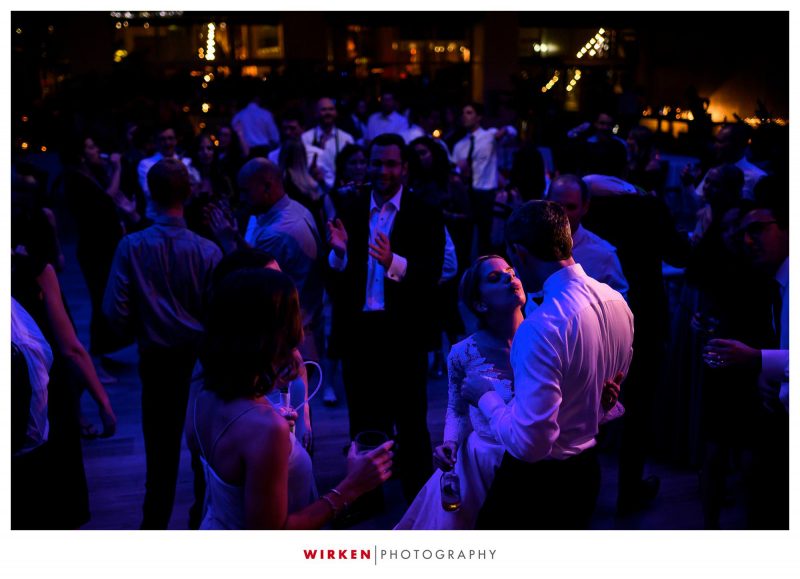
Alan Law:
Okay. Wow that’s interesting.
Tyler Wirken:
I love adversity, right?
Alan Law:
Yeah. Have you always been like that? Like as kind of a continual life challenge, you know, because a lot of people want an easy ride in life, but you like adversity, don’t you?
Tyler Wirken:
I like adversity in terms of manageable adversity, right? You know, things that are, you know, I always tell people at my wedding clients. I’m like, I hope something goes wrong at your wedding, right? I tell them.
Alan Law:
Do you really say that, yeah?
Tyler Wirken:
Manageable adversity is when the best in people come out, right? And it’s when adrenaline comes out and then you feel this sense of accomplishment because you handled something, you got through something, right? I always tell people everything easy in my life was never memorable. Right? You always remember the things that were hard in your life that you got through. Right? And I said manageable, right? Because I don’t want like major, major problems like house burning down or,
Alan Law:
Yeah, that wouldn’t be good.
Tyler Wirken:
You know, things like that. Right? But like, so I think that, I don’t know if I’ve always been that way, but my dad, my dad is really close and he’s like the biggest mentor, right, to me. And he was that way, right? He’s always like, yeah, problems and solutions. Right? And so this actually came from the Land Rover and from off-roading so much because you’re out in the middle of nowhere and things go wrong, right? You get stuck, you have a car problem, but you know what? When you handle all those things, and you get through to the other side, you have this sense of accomplishment and you’re just, oh, those are the best days. Right? So.
Alan Law:
Well that’s cool. That’s like a little microcosm of life as well, isn’t it? I think that’s cool. I love the way you mentioned your dad there and I loved the way on your site, you say that you learned to build photos from your dad and he wasn’t a photographer though, wasn’t he? So could you explain to listeners what you’re meaning there?
Tyler Wirken:
He wasn’t, but he’s the one that kind of got me into photography because he had like kind of an amateur, you know, had 35 mm cameras and you know, that kind of stuff. But no, he wasn’t a photographer by any means. Yes. So my dad taught me how to build things, right? He taught me how to fix cars. He taught me how to, but he actually taught me how to build things well. I mean, he still does to this day. Right? And the biggest thing was let’s just take one example when I was an electrician working for him. You know what electrical conduit is right, the metal conduit that they run wires in?
Alan Law:
Okay. Yeah. Kind of. I’m the most impractical person ever. But I’ll go with it.
Tyler Wirken:
Yeah. The metal pipes that they put on the wall that they have to put wires in, right? So you have to run the pipe first and then you pull the wire into the pipe, right? So you have to mount all this to the wall and you’ve got to do bends and all that kind of stuff. And I got it done and he goes, it’s crooked. And I go, no it’s not because I was a stupid teenager. Right? And I take my level and I put it on the vertical and I’m like, look, it’s perfect, dad, perfect. And he says, yes, but it looks crooked. Okay? Because you’re referencing it to the building, to the original building, right? That is not perfect. So as soon as the new thing perfect, it’s going to look crooked because the building’s actually crooked, right? So he says you have to make it crooked to make it look straight. And that kind of blew my mind. Right? So you have to fudge that stuff. And so that’s just one example of where that helps me in my compositions.
Alan Law:
Okay. In what way?
Tyler Wirken:
Well, in terms of like building the composition, right? So for instance, say I can’t get because of the lens choice or where I stood, I can’t get everything like square and parallel like I wanted to. So now I’ve got to fudge it, right? So that way it’s not as recognizable to the viewers’ eyes. Right? So for instance say you got, and I know this is a podcast, so I have to try and explain this without any video. So say you’ve got two parallel lines that are really close to each other. Okay? If one of those lines is crooked, you’re going to notice it because you’re referencing it to both of them. But if that line is far away from that other line in space, you’re not going to see that difference, that slight difference. Right? So for instance, when there’s a line at the top of the frame and it’s crooked, well that’s going to throw people’s eyes off cause they’re like, well that’s crooked. So then you either have to cut that down with the top of your frame through the viewfinder or you give it more space to kind of not let that be as noticeable. Right? It’s just a small example. But I mean, everything we do, you know, he’s always like, do it right, take your time and if it’s not right, take it apart and redo it.
Alan Law:
That’s cool.
Tyler Wirken:
Right. Cause that’s what he said to me. He goes, I think it was that it was another one where he’s like, well that’s crooked. And I go, but dad, it’s under a floor. No one’s ever going to see it. And he says, but you’re going to know it’s crooked so fix it. Right? That’s where that kind of comes in too where it’s like, you know what? I got to take my time with these pictures and I got to wait for what needs to happen and it’s got to be as good as I can make it. And so, yeah.
Alan Law:
Yeah. That’s cool. What has he thought about your career as a wedding photographer then? Is he…?
Tyler Wirken:
Yeah, he loves it. I mean both my parents have been incredibly supportive. I mean, even when I didn’t want to take over the business.
Alan Law:
And what business was that?
Tyler Wirken:
That was the electrical business. He had a very successful electrical contracting business and they were extremely supportive about everything. And they always have been. They’re really just amazing people and amazing parents. And so just today, just before I got on with you, he says, Hey, I saw one of your… cause I’ve been doing a lot of this content because of the pandemic. I’m putting out all these workshops, right? And he goes, Oh, I saw one of those. And he says, that’s amazing. He goes, you’ve been doing this almost your whole life teaching and we’ve never seen you do it. That was so fun to see you do it. And even to this day, he’s so supportive. So.
Alan Law:
That’s really nice. That’s cool. You mentioned there and I’m a member of your group as well. The Wirkshoppers, which is a very good name. And as you said you’ve created so much free content already. Can you tell us a bit more about that then? And you setting that up?
Tyler Wirken:
Yeah, man. I mean, I can’t believe that I added it up the other day. And in the month of April, I’ve done 18 hours of content, right? Yeah. I mean, it’s crazy, right? So the workshop series is WIRK, so ‘Wirken’, Wirkshop series. Right? I’ve had that for man, I mean, over a decade I started that. Right? And I’ve never really, again, you got to play that game as well, right? Like you got to play the game of social media, promoting yourself and you know, getting out there and being like, I do workshops and winning awards to kind of build that business and I never wanted to play that game, right? Like I’m getting better but in the beginning I was a really bad self promoter. Right? And so anyway for years I’ve been always wondering like, man, what should I put my time towards? Should I put my time towards Wirken photo, which is my wedding and family business? And then recently, should I put my time towards Wirken media, which is the commercial business? Or should I put my time towards the Wirkshop series. Right? So I always felt like I was giving a little bit to each but not enough to one of them. And so now that the pandemic hit, I’m like, I got no choice. It forced me to put the effort towards the Wirkshop series. Right? And so I followed the lead of some of my friends like Lanny and Erica, you know, Two Mann, you know, and I have a business coach, his name is Dave Moss. He’s really amazing. He’s actually going to be on Monday with the Wirkshop series talking about business stuff. Next week is business week on the Wirkshop series. I don’t know when this airs, but….
Alan Law:
This should come out Thursday. So when people, if they want to join the group, you know, can you tell them how could they do that?
Tyler Wirken:
Yeah, yeah. It’s just a Wirkshoppers. So it was my Facebook group that I had for my Wirkshop people and there’s about a hundred people in there and I hadn’t posted in it since like 2016 cause I just, you know, whatever. Following their lead, I decided to open it up to really anybody that wants to learn about this stuff. And so that’s what I did during the pandemic. I’m like, I might as well get this content out there, get it online. So I opened this group up and it’s called the Wirkshoppers. It’s on Facebook and you just got to go and ask to be, I have to approve people. Right? But we’re up to about a thousand members now, which is nice. And so, yeah, so it’s all by pure documentary. In April we did every Monday, Wednesday and Friday. I did content. So I had discussion shops, which are discussions with my friends and workshops, right. Every Monday. And then on Wednesdays I did the Wirk through it, where I go through some of my own pictures and thought processes. And then Fridays are the hot seat Fridays, which is always critique. And I’m not sure how it’s going to go into May yet. I don’t know if I can sustain this.
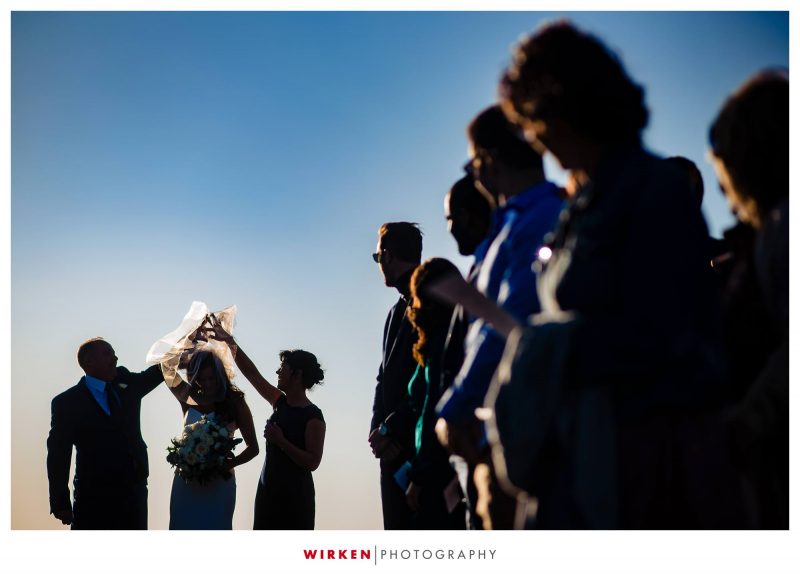
Alan Law:
I’m sure you will. You will. It’s just going down so well as well. I have to say you’re so lucky having Wirk in the beginning of your surname. The amount of puns and the ways you could use that is so cool.
Tyler Wirken:
I know, I’m trying to. Hey for my whole life I was the kid that always got picked last for everything cause it was the w name, you know, so I’m like, you know what, I’m going to use this. Yeah, exactly.
Alan Law:
Well, it is wirking for you, eh.
Tyler Wirken:
You know what I mean? If anything it’s like getting me, because I want to start a YouTube channel. So it’s forcing me to get this content going and to learn live streaming and then I get to see all my friends who are just amazing people. Like, you know, I just did a critique with Kirsten Lewis last night and Huy has been on there and Nicky Boone and Erwin, I mean, just amazing people that are so inspiring to me. And then we also did a critique with Lanny and Erica. They critiqued me and I critique them. That was pretty cool. So
Alan Law:
That’s cool man. And how are you finding that? Before this had you done any Facebook lives or was that your first?
Tyler Wirken:
No it was the first time.
Alan Law:
I’m going to do the first one of This Is Reportage on Monday. I’m nervous, man. Do you find it nerve wracking?
Tyler Wirken:
No.
Alan Law:
No. Any tips? Any tips?
Tyler Wirken:
Yeah, I mean you’re really good at interviewing, right? So you know, this is going well and it’s because you listened to what that person’s saying that will help with the segues, you know what I mean? So yeah, yeah, yeah, yeah. I mean, the hardest part is just the technical part, right? Getting the cameras, stuff going right and I use a software called E cam live, which is really fantastic. It records everything automatically to your machine so that’s good, you don’t have to remember and the quality is really fantastic.
Alan Law:
Yeah. Honestly, your live streams look absolutely brilliant. Really, really, really good. And obviously people listening to this, do join that group because it’s absolutely brilliant what Tyler is doing and the amount of content that he’s giving out there. Honestly, it’s so good. That software you use, so it’s Mac only, isn’t it? I think I’m PC man. I’m one of the only photographers. That’s cool.
Tyler Wirken:
Well, yeah, I mean like I always felt like, you know, I worked hard in the beginning when this pandemic first hit, I worked hard to get the quality up because I’m like, this is a photography Livestream. I really think that I can’t get away with not good quality. Right?
Alan Law:
I get that.
Tyler Wirken:
That was fun. It’s fun.
Alan Law:
That’s cool. No, very cool. And let’s change tack. Let’s change tack again then. Now a lot of people at the moment with the pandemic are watching a lot of TV. So do you have any, what’s your favorite kind of Netflix kind of series? Are you much of a TV watcher or?
Tyler Wirken:
Well, the absolute one that especially your audience needs to watch if they don’t already is Ozark.
Alan Law:
Oh yes. Cool. I’ve seen the first two series, but not the third series. It’s good, isn’t it?
Tyler Wirken:
Yeah. So you know that Lake house I talked to you about?
Alan Law:
Oh yeah.
Tyler Wirken:
Yeah, it’s in the Ozarks.
Alan Law:
Oh really? Oh wow. Cool. Did they actually film there then? Is that, yeah?
Tyler Wirken:
Funny enough No.
Alan Law:
It’s actually shot in Vegas.
Tyler Wirken:
Right? I’ve learned they actually film it in a Lake in Georgia but it is so accurate in terms of even like, because they talk about Kansas city, I have to go to Kansas city, I have to go to Jefferson city, like all these, that’s where I live. So it is a hundred percent just like if you went to the Lake, if you came and visited me and we went to the Lake, it’d be exactly like that.
Alan Law:
Oh, okay. Oh that’s interesting. I wonder why they don’t actually shoot at the real place.
Tyler Wirken:
I’m not sure. It might just be, you know, who knows? But I mean, it’s like, you know, there could be like regulations, whatever, but it’s so similar. Like they have done an incredible job even down to like the Kansas City mafia guys. Like that family exists. It’s that crazy. Right? So yeah.
Alan Law:
You haven’t shot any of their weddings, have you?
Tyler Wirken:
No. But I think they exist. I mean, at least I know the name, maybe the name is slightly different, but I mean it’s like, I’m like, I remember that name anyway, so, you know, Ozark is my favorite.
Alan Law:
Is the third series good?
Tyler Wirken:
Oh Dude. It’ll blow your mind. Right. The one I love recently which takes place in the UK is the Stranger, have you watched that?
Alan Law:
No, not seen that yet. What’s that about? I’ve not seen that.
Tyler Wirken:
It is incredible. Like it is crazy good. And it’s about this stranger, this person who kind of like blackmails people. But it goes like, so it’s all intertwined. It’s one of those shows that’s like super intertwined. You know where like all the stories are separate, but they all end up working together. Oh man, you got to watch that. I love that. Yeah.
Alan Law:
That sounds good. Okay. Is that on Netflix as well? Is that Netflix thing?
Tyler Wirken:
Yup.
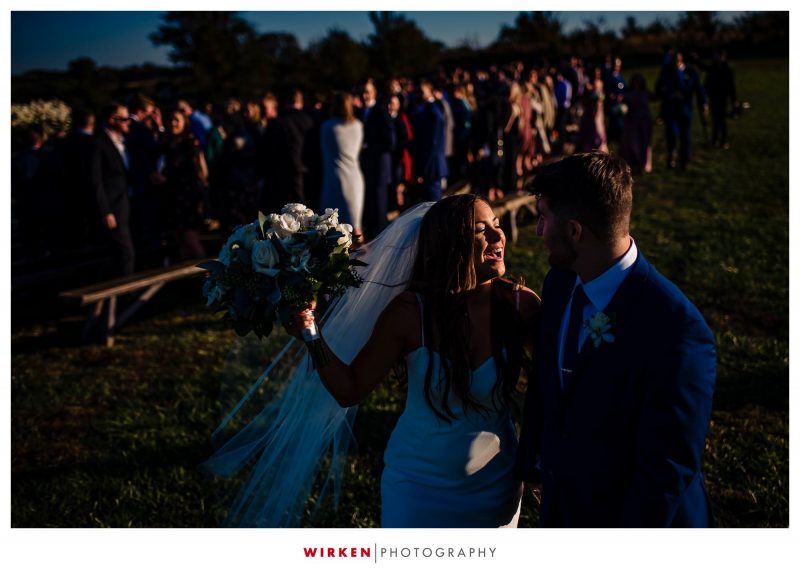
Alan Law:
Okay. Sound okay, cool. I’m going to check that out. I’m going watch. Okay, cool. I’ve never asked this question before, but has there been an occasion where you’ve been really, really embarrassed at a wedding or otherwise?
Tyler Wirken:
Yes. There’s many times. I think the first ever time that I remember being super embarrassed is as a kid. We went to the swimming pool. I kind of remember this, I was with my sister and I thought I had my swimming suit on under my shorts and I took my shorts off and I was standing there naked, I think.
Alan Law:
That would stick in your memory. That would definitely stick.
Tyler Wirken:
That would stick in my memory. Right. But you know, you what’s funny about embarrassed at a wedding, I’m to the point in life now where like that doesn’t really bother me anymore. I kind of just try to own the embarrassment, right? Because all of this stuff that embarrasses people has happened to everybody else. Right? I mean, like, you know, so it’s I mean, I was shooting a wedding one time and I was the only photographer there and it was a destination wedding. It was a photographer friend of mine. And right when the ceremony started, I kneeled down to get to get an image and my pants split open. Right? And then as I kept shooting, it kept getting bigger and bigger and bigger. By the time the ceremony was over my entire leg, I have a photo of it. My entire leg was hanging out of my pants. Right? And I’m like, you know what? I just got to own it. I mean, like I was embarrassed, but what am I supposed to do? I had to go back to the hotel and put blue jeans on and then come back and keep shooting the wedding. So yeah, that was a bit embarrassing.
Alan Law:
Yeah. No, that’s funny though. That’s cool. That’s cool. Do you think, you know, I’m just saying a lot of photographers, especially when they start out, I think they think when they turn up a wedding, they need to act like very professional, almost like a persona. They have to almost, you know, pretend to be someone they’re not. Have you always been different to that? Have you always, you know, with me, I think you just got to be yourself. Have you always been like that or have you changed, you know, from starting out until how you are in the recent years? You’re very comfortable in who you are, I think.
Tyler Wirken:
I am now. I wasn’t always, right? Cause if I was, I would have continued that journalism career a little bit longer probably. Right? But no, I am myself as much as I can be oftentimes to a fault. Honestly, right? I mean, there are times where my wife’s like, did you just say that? And I’m like, yeah, you know, because when you do this, and I think a lot of that has come from wedding photography, right? But also because of my teaching, right? So I’ve taught so many workshops and I’ve dealt with so many different people that like, I would be afraid to say something in front of them or something because I don’t know how they would react. And by the end of the workshop, we’re all just the same. It’s just other people are saying the things more than other than, than the rest of them. Right? And so, you know, I think ultimately you need to be yourself. Right? I think that I think that people can sniff that out. People can sniff out when you’re being fake, but I do believe that you have to adjust how you are to the situation sometimes. So like if I’m acting the way that I am where I’m kind of loud and I use a lot of words and all that kind of stuff and something’s really intimate happening, I need to adjust that as a wedding photographer, because one of the most important rules of photojournalism is to respect the integrity of the moment. So you got to kind of push and pull that a little bit. Right. And I think that if you’re an introvert, there’s times where you have to extrovert yourself to kind of get where you need to be photographically and then you can go back and Vice versa.
Alan Law:
So. Right. Yeah. That sounds cool. And generally just while I think about it now, because I know people have different kind of approaches. What is your general approach in terms of, you know, your general coverage in that do you ever, are you talking at all to the people that are in front of you at all or are you interacting with them? You know, a lot of photographers like to banter with the people that are around them, but then there’s the opposite approach where some people are just totally silent, you know, and don’t want to interact at all with people. What’s your approach in that kind of way?
Tyler Wirken:
I think you have to interact in my opinion, right? So the only way that you can really gain trust is by talking and kind of, you know, addressing that awkwardness. Right? Especially in the documentary world. The problem is… the art is knowing when to shut up and shoot. Right? And so I think trying to break that conversation because the other people will just talk the whole time, right? Because it’s awkward. Trying to break that conversation and reset the scene and get back into being you know, a documentarian, there’s a trick to that and there’s a skill to that, right? And so there’s that balance, right? So I think that you can do that, but you have to try and figure out when to jump in and when to not jump in. And you can feel that out by feeling out and reading the people that you’re photographing. You got to pay attention to how they’re acting. Right? You got to, and I think a lot of photographers don’t do that. I think a lot of photographers get so tunnel-visioned on trying to get what they want for the picture in front of them, they’re not reading the room. They’re not really paying attention to how they are interacting and affecting the scene. Right? And so that’s where you got to push and pull that.
Alan Law:
Yeah. That’s cool. Yeah. And that people side is so important, isn’t it? Yeah. Do you think it’s important to you? Do you generally meet most of your clients before the wedding? Is that important to you?
Tyler Wirken:
It’s essential.
Alan Law:
Yeah. Okay. Cool. That’s interesting. Yeah.
Tyler Wirken:
I spend on average between the initial consult and the planning meeting, I spend at least four hours Face Time with my clients before the wedding.
Alan Law:
Wow. Really? Wow, that’s really interesting. Have you always done that or is that more of a recent thing or, yeah. Cool. Okay.
Tyler Wirken:
Yes. It’s essential. I mean, I think they got longer. The meetings got longer as I realized how important they were. But it is vital to my success as a documentary photographer because I need to make sure we’re on the same page and I need to get their trust. And because I tell them, I go, you expect a lot from me. Obviously. I expect one thing from you and I expect complete access into your lives on that day. Right? I might not get it, but I go in expecting it because I have to. But in order to get that access, they need to trust me. Right? And so, yes, I will not book a wedding unless I have the initial consult via Skype or in person. I won’t book the wedding because I need to make sure that it’s a good booking and we’re a good fit.
Alan Law:
Oh wow. That’s very cool man. So even if someone was going to give you like 50 grand to go and shoot a wedding?
Tyler Wirken:
No I take the advice and just show up and shoot it. Right? As you go through this and especially with my style, my style takes a certain person that’s okay with that approach. Right? And you have to make sure otherwise if we’re not a good fit, it is not going to work.
Alan Law:
Yeah. No, it’s so true. Have you ever turned down potential work?
Tyler Wirken:
Not, not really. I mean, I used to like sabotage the meetings when I knew it wasn’t a good fit. I would just start talking about things that I knew they didn’t want. I just think it’s rude for me to just be like, it’s just not going to work. This is not what’s good for me. You know? I think that’s kind of like, you know, so, but there was one person, I didn’t turn it down, but she could understand what I was talking about. I always ask at the start of my meetings, I say, what do you want from your wedding photography? And she said, I just want to look good. And I said to her, I can’t guarantee that that’s not my thing. Right? So then we went to the meeting and she could tell that, you know, and I knew it wasn’t a good fit. And so at the end she’s like, so you don’t think this is going to work? And I go, I don’t think I can make you happy. Right? So I said, and then I come to find out she’d already hired somebody who was the complete opposite of my style. And she didn’t like the engagement session. And so I told her, I said, you know what? I think you’re overcompensating. I think there’s somebody in the middle that is a nice blend of these two different ways is what you need. So.
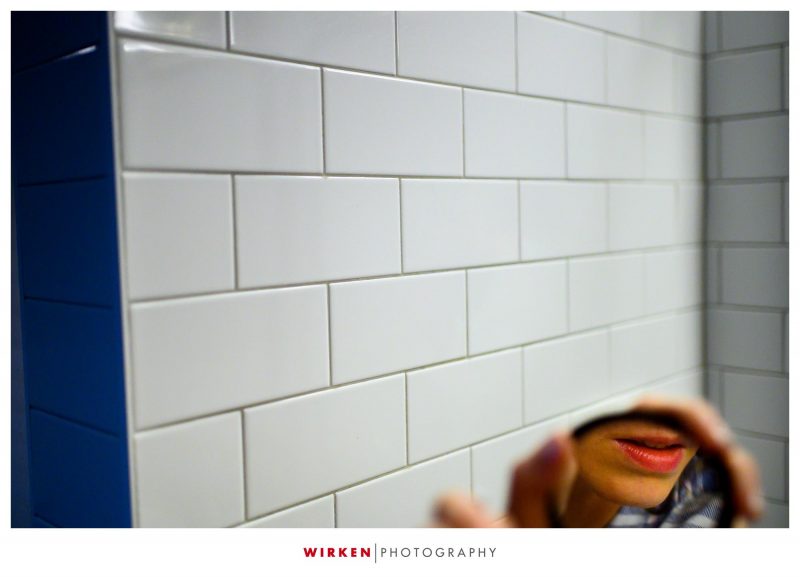
Alan Law:
Well that’s a win-win all around, isn’t it? It’s not good for.
Tyler Wirken:
Didn’t like tell her no, but I basically was like, I just don’t, you know? And so I’ve gotten to the point now where I can really tell ahead of time if this is going to be a good fit or not, you know? And then I can kind of head it off, but I have to do it in a nice respectful way, you know? Because it’s not their fault they are this way or they want that. They just need to get it, you know? So.
Alan Law:
Yeah. Cause there’s no right or wrong in what people want isn’t it? Everybody likes different things. So.
Tyler Wirken:
There’s no Right or wrong in terms of what styles of photographers doing wedding photography, like you can literally do whatever you want, it doesn’t matter. You know?
Alan Law:
And that’s the beauty of it. It’s the beauty of it. It would be so boring if we were all shooting things exactly the same way, you know? Totally.
Tyler Wirken:
Yeah. But you get those arguments where people’s like, nah, you got to be documentary. I’m like, I don’t care.
Alan Law:
Oh, no. Same here. I know. I know.
Tyler Wirken:
It’s whatever you want. Like, you know? Yeah
Alan Law:
Exactly. Yeah. There’s no right or wrong. I know this is obviously something that you could talk about for ages and forever, but I think a lot of listeners would be really interested, obviously coming from you. What would be your top tips to help someone become better at the documentary side of wedding photography?
Tyler Wirken:
So whenever people ask me or I have people come up to me often and they’re like, I’m not happy with my work. You know, I want to do better documentary stuff, whatever. And I tell them which is the first step is I tell them, if you want to get better and have your work be different then you got to stop thinking like a wedding photographer. Okay? That’s step one. And that’s what I did. Remember back in the day when I said I had to be like a wedding photographer and then I changed, right? So I’m a documentary photographer that does this at weddings essentially is what I think now. Right, Okay? You gotta stop thinking like a wedding photographer and then within that then you have to then change your perception and commit to the moments. Right? So that was the second thing that changed things for me was I went to foundation workshop as a student in 2004 and I met like many of my lifelong friends from that one time. And there’s a good friend of mine, his name is Brooks Woodington. He doesn’t shoot anymore out of Texas, but he was like my documentary inspiration. Right? Like I shot with him one time and he made me wear an ear piece so we can talk to each other. And I moved a door open to kind of get a better frame, like a tiny bit. And he’s like [cough cough cough] in my ear to tell me not to do that. Like that’s how pure Brooks was, right? So I asked Brooks one time, I’m like, dude, how are you getting these moments? Like, am I not good enough? Are they not at my weddings? Am I not seeing them? Like what’s going on? And he says to me, he goes, well, how are you running the day? And I told him how I was doing my schedule back then where we do a first look and then we do portraits and then the ceremony, and then we do more portraits and then the reception. And he goes, well dude, you’re not letting anything happen. And it was like a truck hit me, like a ton of bricks. I’m like, oh yeah. So that makes sense. Right? And so you got to commit to it. Right. So I’ve had, I’ve had many students that are trying to do like the two different things. I want to do all these fancy portraits with all my tricks in my iPhone reflections and whatever. But I also want these moments and I’m like, well, you got to commit to one of them, you know, because you can’t do it all really well. You got to balance that in a different way. So. You said top five?
Alan Law:
No, just top tips. There’s not a certain number.
Tyler Wirken:
Those are my top tips because it truly is a mindset, right? Yeah. It truly is a mindset and just like regular real photo journalists who do big photo stories, they spend more time prepping and researching than they do shooting. And so that all has to go into that same approach. Right? And so
Alan Law:
Oh, that’s cool. That’s great advice, man. That’s awesome. And oh man obviously this has gone so quickly, but I think we just got just time to one more question. I’ve got so many more. I could just go, it’d be like a six hour podcast.
Tyler Wirken:
It’s a lot of years of teaching this and doing speeches and stuff. It’s all kind of there. Yeah.
Alan Law:
Yeah. So I know this is probably a super hard question, but can you think of a certain photo that you took that’s had some kind of lasting impact? Perhaps that impact has been on your career or your confidence or your direction or just an image that’s just particularly memorable to you for some reason? Doesn’t need to be wedding specific, but it could be just a certain image that you’ve took that’s had some kind of impact.
Tyler Wirken:
Yeah. You know, usually what matters to me is not the photo but the process. Okay. Right. So I live for the process of shooting the pictures and the experience more than I do the end result. Right? Okay. So with that
Alan Law:
In what way, what do you mean about that process then?
Tyler Wirken:
Being in the moment, right? Like being there. It’s no different than the adversity that I like when I’m like in my Land Rover trying to get over some mountain pass that is hard to do. Right? It’s like watching an athlete that will do something all at once in this moment and you’re just like, Oh my God, that was amazing. Right? And so I love the idea of my process, you know, my anticipation putting light moment composition together, feeling the energy of the room making it all come together and then boom, the image happens and it all happens in harmony with each other. Right? Like I love that adrenaline rush of that and trying to figure it out more than I do coming back. Typically, when I shoot a wedding, I don’t even download my cards till like the next Monday or Tuesday. Right? Because I just don’t, I mean, at that point it’s like, well, you know, the picture’s great, but I like the process.
Alan Law:
Yeah, no, that’s very cool.
Tyler Wirken:
But to answer your question, there is the only picture that ever comes to mind is the day that our second son Zach was born. And so it’s in, you know, in the hospital, I’m not in the picture because I shot it, but it’s my wife Pam in the bed. And at that time, Alex would have been two because they are two years apart, around two. Alex is laying and snuggling with Pam in the bed and right next to that to the bed is the bassinet with Zach still in the hospital. Right? And so that’s the most important picture, right? Because that’s when we were a complete family. Right? Yeah. Yeah. I got to find that photo.
Alan Law:
No, that’s beautiful man. It’s really lovely. Oh man, thank you. Thank you so much for your time and your honesty and openness. I really enjoyed talking to you. Thank you. It was awesome.
Tyler Wirken:
It was great. I was honored to be here and I think what you’re doing is certainly a good thing, celebrating this style, you know? And I love all my UK people so.
Alan Law:
We’re good eggs over here. We are good eggs. We never met properly but I saw you talk at the first nine dots gathering and you were brilliant man. You were so great. You were so great. And if anyone’s listening honestly I was going to say, I normally say whilst you are editing, but you’re probably not editing a wedding at the moment but if you’re maybe doing a run or something, you know, head to the site, thisisreportage.com and I’ll show examples of Tyler’s work linked to his various websites and a link to that Facebook group as well that we were talking about. Honestly, do join it. It’s amazing what he’s doing there.
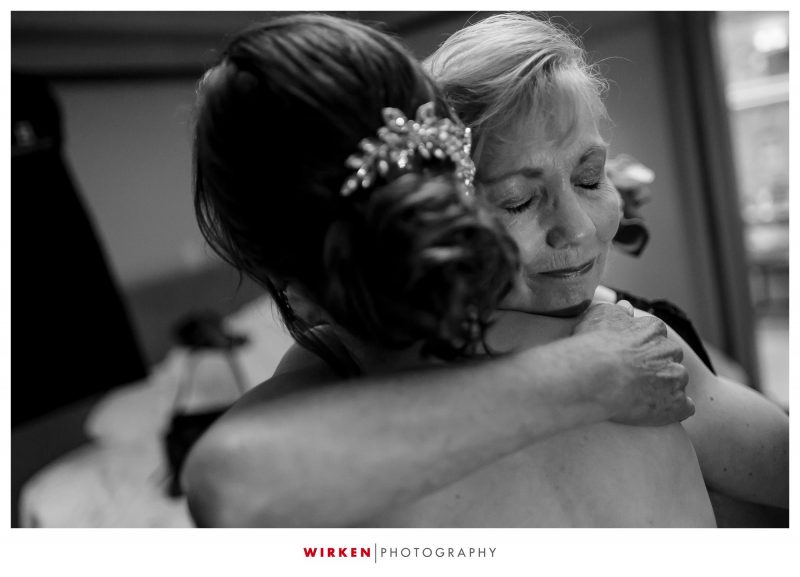
Tyler Wirken:
I’m actually getting ready to, because I’ve had some requests. I’m getting ready to in the next couple of weeks to roll out an online workshop that’s called The Art of the Moment and it goes through everything that I do, from like my client relations to how I shoot and all that kind of stuff. So.
Alan Law:
Cool. Well that sounds great. And I’ll put a link, whenever that’s properly released as well, man. Awesome. Yeah and honestly that was so great. Thank you. Thanks Tyler. And hopefully I’ll get to properly meet you one day in the flesh at nine dots again sometime or Doc Day.
Tyler Wirken:
I used to get over there quite a bit. I don’t know if you know Ben Toms.
Alan Law:
I know of him. I’ve never met him, but yeah.
Tyler Wirken:
Yeah, he was a past mentor student of mine and we have now become Land Rover buddies. He bought a Defender and so we, you know, we have plans to hopefully get back over there again and so it would be fun to… but you’re so far away though, you’re like,
Alan Law:
Oh yeah. I am in the very tip, yeah. Southwest.
Tyler Wirken:
Stewart talked about bringing me out that way down that way for a workshop sometime. Maybe we just need to make that happen, you know?
Alan Law:
Yeah, that’d be cool. Yeah, definitely. That’d be awesome, man. It’s funny you talk about land rovers, you know, I can only drive an automatic, I’ve only got an automatic license, so I can’t even drive a manual car.
Tyler Wirken:
They have different licenses?
Alan Law:
Yeah, they do in the UK. Yeah. You can just get an automatic license. Yeah.
Tyler Wirken:
Well, that’s interesting. That’s so funny. I mean, there are some defenders that are of course, automatic, but that’s so interesting that they do that because over here they don’t even have like manual cars anymore. Like you can hardly get a manual car. So.
Alan Law:
Different worlds man. I really appreciate it. Thank you. Thanks for your time, man. Keep safe.
Tyler Wirken:
Yep. You too.
Alan Law:
Bye. Bye.
Tyler Wirken:
Bye
***********************************************************
Thanks to Tyler for this fab interview! You can see lots more examples of his work on his websites:
Wirkshoppers (The Facebook group we talk about in the episode)
Interested in joining us here at This is Reportage? The deadline for our latest round of Awards – Collection 15 – is soon: Submit by 23:59 BST on 24th May 2020. Members receive 60 Reportage Award and 18 Story Award entries per year, as well as an *unlimited* number of images on your profile. See all the benefits and apply to join us over here.
